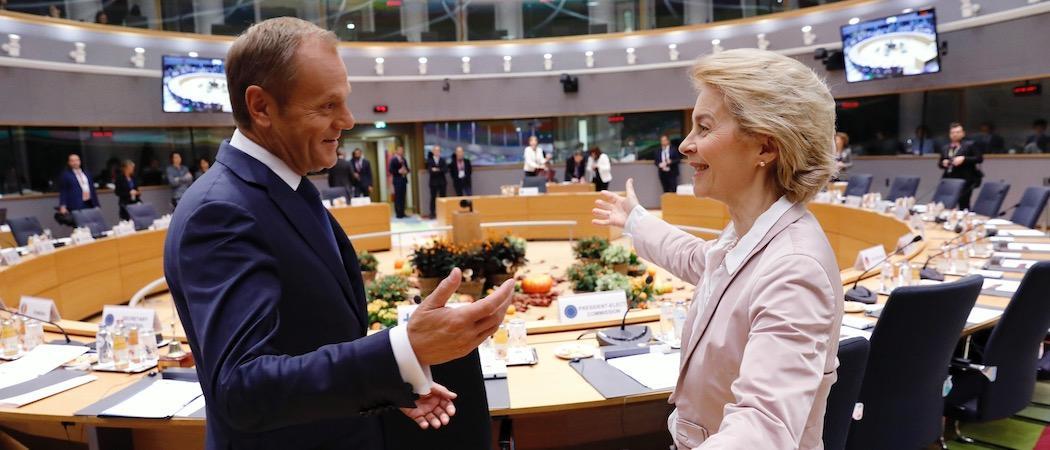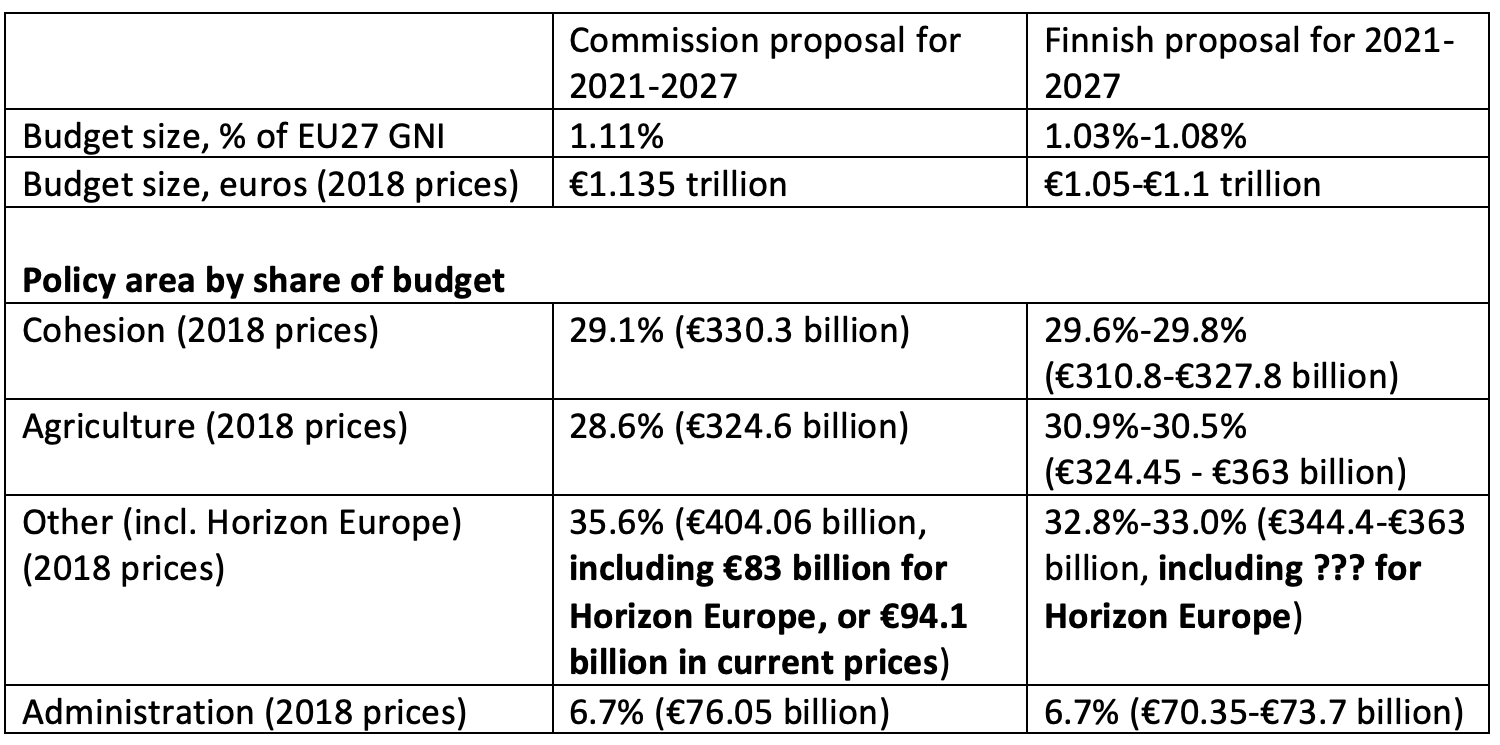EU leaders remain deadlocked over the union’s next long-term financial plan, but all signs point to a smaller research budget from 2021

Outgoing European Council President Donald Tusk and incoming European Commission President Ursula von der Leyen. Photo: European Council
The European Union’s next big research funding programme, Horizon Europe, faces the strong possibility of cuts as EU leaders grapple over the bloc’s next long-term budget.
At a summit meeting on 18 October, EU leaders discussed proposals from Finland – which currently holds the EU Council’s rotating presidency – to cut €35 to 85 billion from the EU’s overall 2021-2027 budget, some of which could come out of the proposed €94.1 billion budget for Horizon Europe.
Serious talks on the EU budget are only just getting started, and a final decision could be as much as a year away. But the current deadlock bodes ill for Horizon Europe: wealthy countries, like Germany and the Netherlands, want to spend far less on the EU than the Commission is asking for, while east European countries are angry about Commission plans to cut payments to farms and poor regions and shift that money to research.
Crunching the numbers
The working paper that Finland submitted to EU leaders, seen by Science|Business, does not refer to Horizon Europe directly. It splits the EU budget into four chunks: cohesion funds for poorer regions, agriculture, administration, and everything else – Horizon Europe makes up nearly one quarter of the last category, alongside items such as space, border management, security, defence, and foreign aid.
The table below shows how the numbers stack up. With Britain leaving the EU, money will become tighter. But the Commission wants to put more of the money remaining into research, as a way to boost the competitiveness of the EU on global tech markets. At the same time, it wants to reduce the proportion of the budget available for two older priorities, farms and regional development. In essence, the Commission has been advocating a change in the basic priorities of the EU – focusing more on what it sees as the EU’s future in science and technology.

But the Finnish proposals suggest the Commission ideas haven’t won enough fans among the EU member states to pass political muster. Some members, such as France and Poland with big farm sectors, want agricultural subsidies continued unchecked.
Others, such as Hungary and Romania, depend on EU regional-development subsidies; under the Commission’s original proposal, for instance, Hungary’s regional subsidies would plummet by about 25 per cent by 2027. At the same time, east European members complain they don’t get enough of the research money to justify their support; nearly 90 per cent goes to richer, scientifically stronger west European counties.
The Finnish proposal appears to reflect this political realpolitik. The budget overall would be cut from the original Commission proposal, reflecting German and Dutch views that they don’t want to take up the budget slack left by Britain’s departure. And of the money remaining, they would also shift money back to cohesion and agriculture. In short, under the Finnish proposal, everything gets cut from the original Commission plan, but “other programmes” – which includes Horizon Europe – would be cut further than the rest, to the tune of about €40 to €60 billion compared to the Commission’s proposal.
Next EU budget risks delay
Member states haven’t agreed anything yet, and they probably won’t for a while. On Friday, they simply asked the Finnish presidency to prepare a document for the next EU summit in December, laying out what needs to be discussed.
A Commission official, speaking on condition of anonymity, expressed concern that leaving it until December to begin substantive negotiations would not allow enough time to have all of the necessary legislation in place when the current budget expires at the end of 2020.
If that happens, EU institutions can agree to let the current budget roll on for an extra year, within current spending limits. That would mean EU research funding wouldn’t dry up, but it would be doled out under the terms of Horizon 2020, the current programme, and not Horizon Europe.
The table was updated on 21 October to show Horizon Europe's budget in both current prices and constant (2018) prices. It was adjusted again on 23 October to exclude from the constant price figure the portion of Horizon Europe's budget reserved for other instruments, which is not included in the current price figure of €94.1 billion.





 A unique international forum for public research organisations and companies to connect their external engagement with strategic interests around their R&D system.
A unique international forum for public research organisations and companies to connect their external engagement with strategic interests around their R&D system.